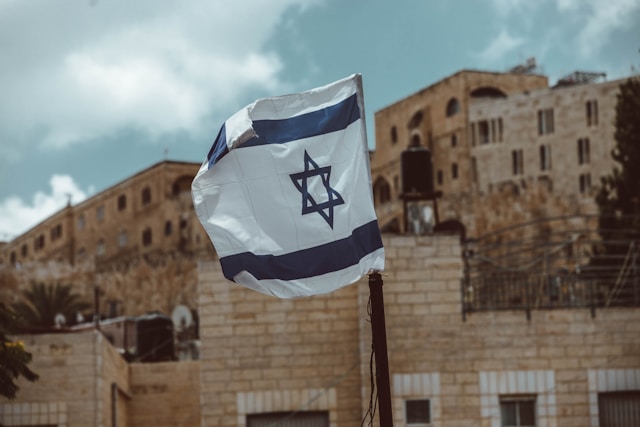Israeli commandos storm Nuseirat refugee camp in a daring operation to free hostages held by Hamas militants, sparking an international outcry over civilian casualties
In a tense showdown in the heart of Gaza, Israeli forces launched a daring rescue operation to free four hostages held by Hamas militants. The hostages, Noa Argamani, Almog Meir, Andrey Kozlov, and Shlomi Ziv, were discovered in separate buildings within the densely-populated Nuseirat refugee camp.
The operation quickly escalated into a fierce gun battle between Israeli commandos and Hamas guards, resulting in significant civilian casualties. Amidst the chaos, airstrikes, artillery shelling, and naval bombardment rocked the area, leaving a trail of destruction in their wake.
Embed from Getty ImagesDespite the violence, Israeli forces managed to successfully extract the hostages and evacuate to safety. However, the operation drew sharp criticism from the international community, particularly the UN, which condemned the high civilian toll and raised concerns about violations of international law.
Analysis:
Political: The rescue operation underscores the ongoing tensions between Israel and Hamas and highlights the complex political dynamics in the region. It showcases Israel’s determination to confront militant threats and protect its citizens, while also drawing attention to the plight of Palestinians living under Hamas rule in Gaza. The operation may further strain relations between Israel and the international community, particularly if allegations of civilian casualties are substantiated.
Social: The operation exposes the vulnerability of civilians caught in the crossfire of conflict, particularly those residing in densely-populated refugee camps like Nuseirat. It raises questions about the responsibility of armed groups like Hamas to safeguard civilian lives and the challenges faced by humanitarian organizations in providing aid and assistance in conflict zones. Moreover, it ignites debates about the ethics of military intervention in civilian areas and the disproportionate impact of violence on vulnerable populations.
Psychological Aspect: The operation has profound psychological implications for both the hostages and the civilian population. Hostages may suffer from trauma and post-traumatic stress disorder (PTSD) as a result of their ordeal, while civilians living in the camp may experience fear, anxiety, and grief following the violence and destruction. The operation highlights the long-term psychological consequences of living in a conflict zone and underscores the urgent need for mental health support for affected individuals.
Sociological Angle: The sociological significance of the operation lies in its reflection of broader power dynamics and social inequalities in the Israeli-Palestinian conflict. It highlights the disparities in power and resources between the Israeli military and Palestinian militant groups, as well as the unequal impact of violence on civilian populations. The operation also underscores the challenges of achieving peace and reconciliation in a deeply divided society.
Racial: The event underscores how racial tensions and divisions play out in the Israeli-Palestinian conflict, with Israeli forces and Hamas militants belonging to different racial and ethnic groups. The disproportionate impact of the conflict on Palestinian civilians, who are predominantly Arab, raises concerns about racial discrimination and inequality within Israeli society. Moreover, the operation exacerbates existing racial tensions and reinforces stereotypes and prejudices on both sides.
Gender: The gendered dimensions of the operation are evident in the experiences of the hostages, who may face specific challenges and vulnerabilities as women and men in captivity. Women hostages may be at risk of sexual violence and exploitation, while men may experience physical torture and psychological abuse. The operation also highlights the roles and responsibilities of women in conflict situations, including as victims, caregivers, and advocates for peace and justice.
Economical: The economic impact of the operation is significant, with the destruction of infrastructure and homes in Nuseirat refugee camp exacerbating existing poverty and unemployment in Gaza. The loss of livelihoods and access to essential services further compounds the humanitarian crisis in the region, with long-term implications for economic development and stability. The operation underscores the need for international aid and investment to rebuild Gaza and support its recovery from years of conflict and blockade.
Psychological: The operation has profound psychological effects on both the hostages and the civilian population, exacerbating existing trauma and anxiety in an already volatile and unstable environment. The fear of further violence and retaliation may lead to heightened stress and mental health issues among residents of Nuseirat and other affected areas. The psychological scars of the operation will linger long after the physical damage has been repaired, underscoring the urgent need for trauma-informed care and support for survivors
